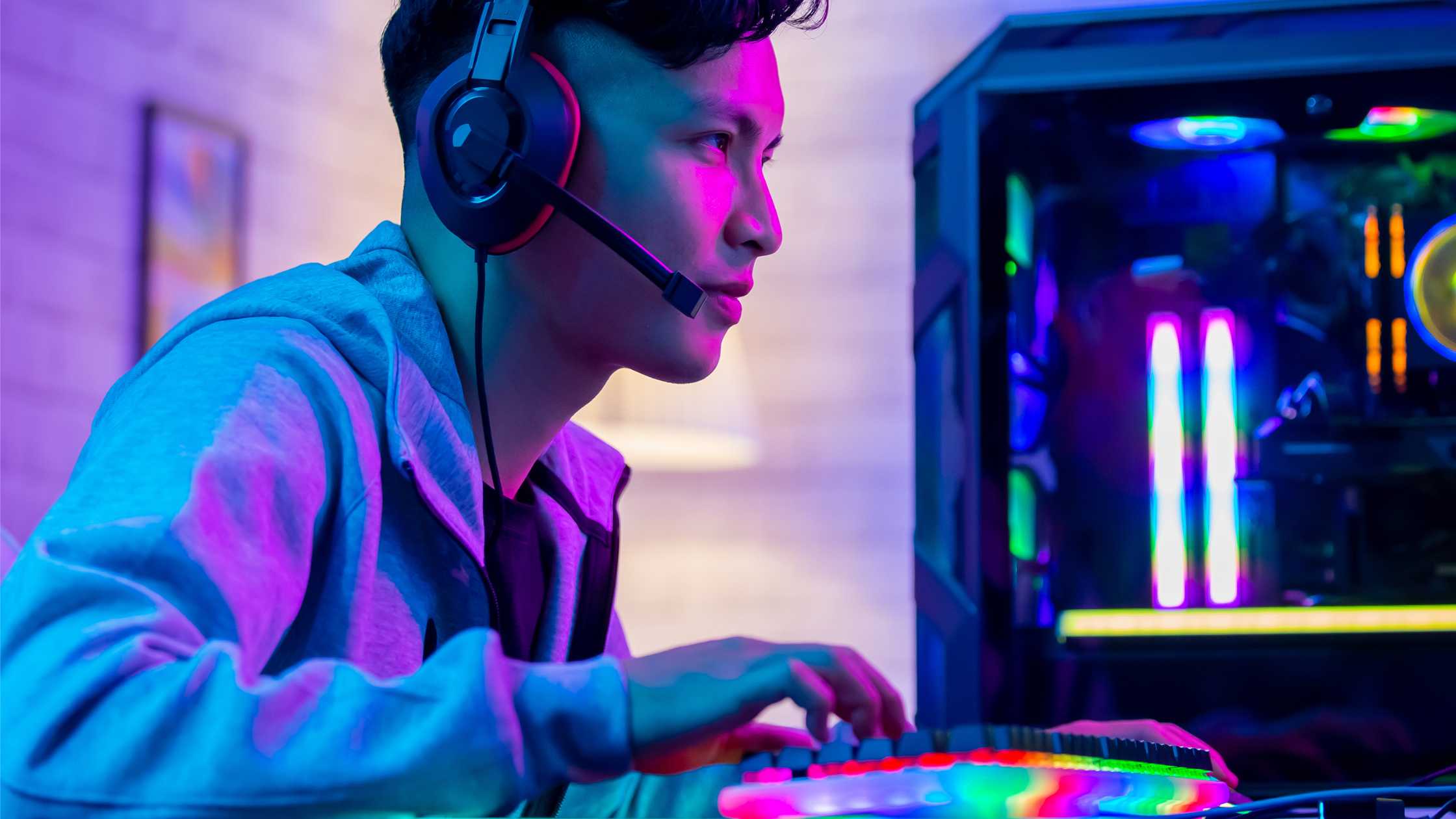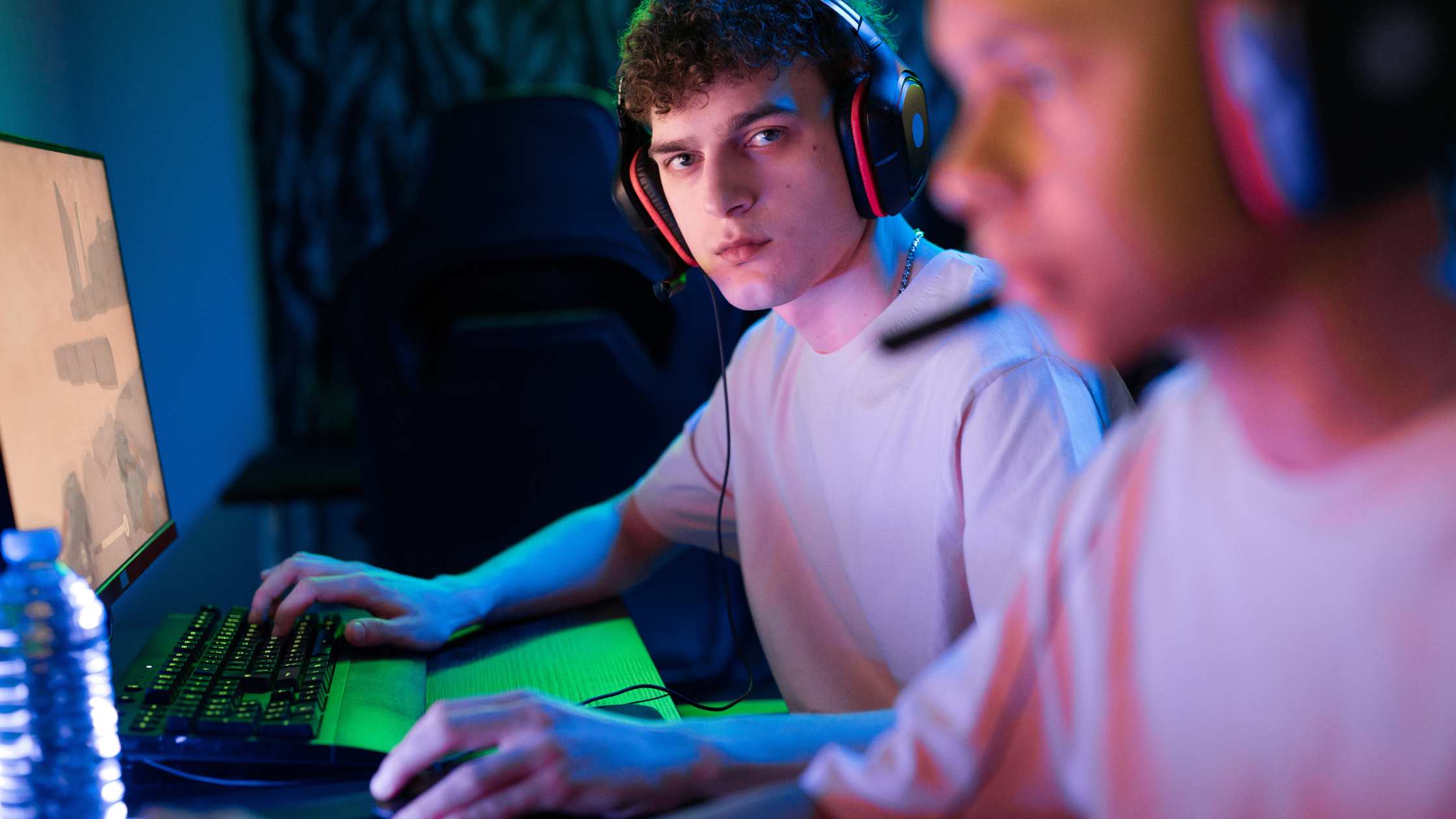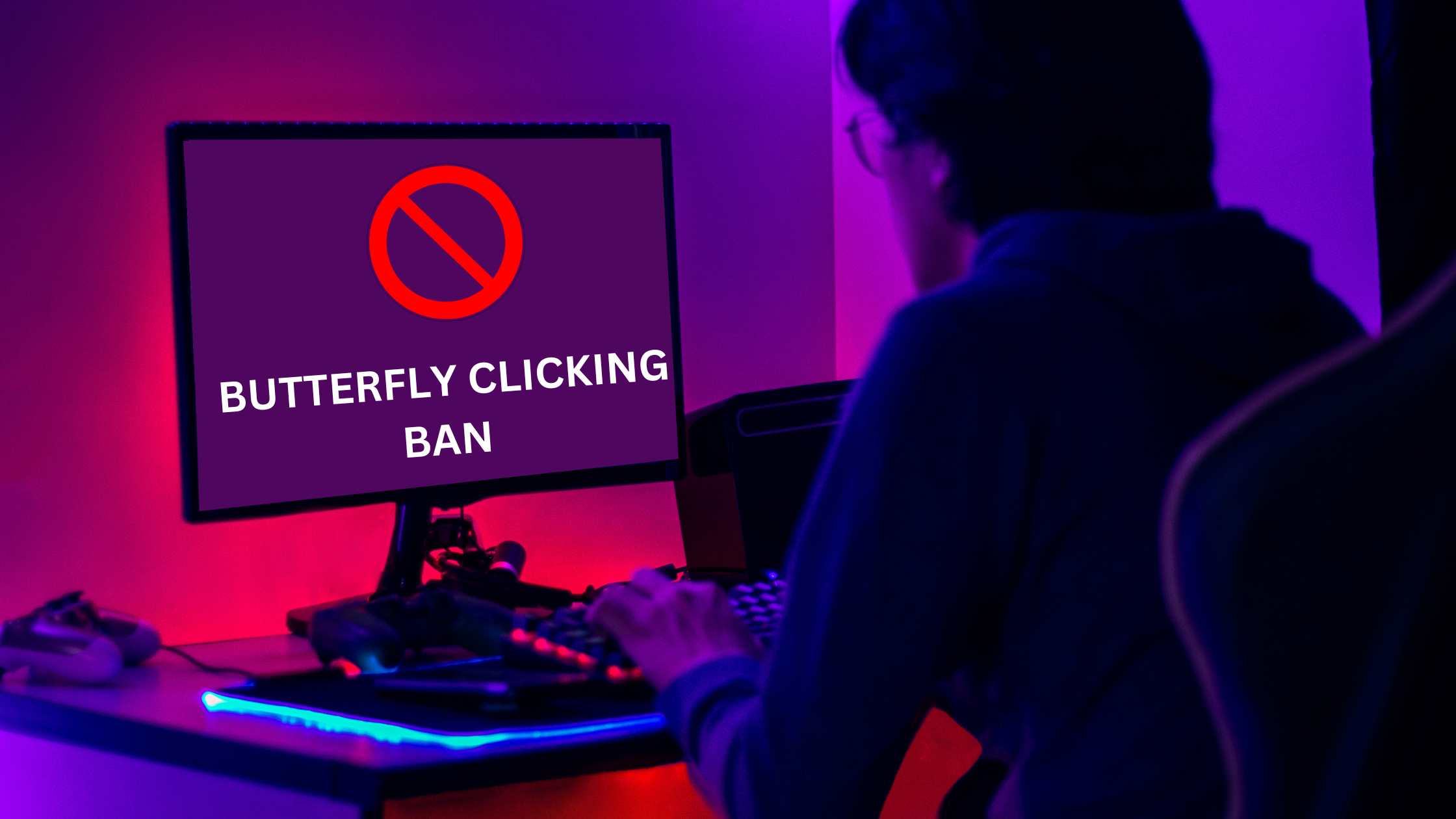Butterfly Clicking Overview

You can quickly generate double clicks and multiple attacks with butterfly clicking, which is a mouse technique used by gamers to increase their clicking speed. This technique involves using two fingers to click the left and right mouse buttons alternately, resulting in a rapid succession of clicks. It requires practice to master, but once you do, it can give you a competitive advantage in games that require fast clicking.
However, the downside of butterfly clicking is that it can cause physical strain on your hand and fingers. This can lead to long-term health problems if you use this technique excessively. Additionally, butterfly clicking has been banned on many servers due to its potential to give players an unfair advantage and its detection as cheating by anti-cheat systems.
As a result, it has become a controversial topic in gaming communities, with some players advocating for its use and others calling for its prohibition.
Autoclicker Detection
Players, beware: using certain clicking techniques can trigger autoclicker detection systems on gaming servers. Butterfly clicking, a technique where a player rapidly clicks with two fingers, can be mistaken for an autoclicker by detection algorithms. This is because butterfly clicking can produce an unusually high number of clicks, which may exceed the threshold set by the server.
Autoclicker detection accuracy can vary depending on the server's settings and hardware capabilities. Factors such as mouse sensitivity, clicking techniques, gaming hardware, and input lag can all affect the accuracy of these systems. Therefore, even if a player isn't using an autoclicker, they may still be flagged by the system if their clicking patterns exceed the server's limits.
It's important for players to be aware of the potential risks of using certain clicking techniques and to adjust their playstyle accordingly to avoid unfair bans or punishments.
Server Policies and Community Consensus
If you play on gaming servers like Hypixel, Minemen, Lunar, or PvPLand, you may have noticed that butterfly clicking and drag clicking are explicitly banned. These server policies are in place to maintain fair gameplay and prevent players from gaining unfair advantages.
The community consensus supports these policies as they believe that banning butterfly clicking helps to maintain a level playing field.
Gaming Servers Ban Butterfly-clicking and Drag clicking
Interestingly, many popular gaming servers like Hypixel, Minemen, Lunar, and PvPLand have made it clear that butterfly clicking and drag clicking are strictly prohibited. The reason for this is to maintain competitive integrity and ensure that all players have a fair chance to win. These servers have identified butterfly clicking and drag clicking as methods that can give players an unfair advantage in PvP battles.
To give you a better idea of why butterfly and drag clicking are considered unfair, here is a table that outlines the differences between these clicking techniques and regular clicking:
| Clicking Technique | Hardware Requirements | Training Techniques | Gaming Culture | Player Behavior |
|---|
| Regular Clicking | None | None | Encouraged | Fair |
| Butterfly Clicking | High CPS mouse | Requires specific finger movements | Discouraged | Unfair |
| Drag Clicking | High CPS mouse | Requires specific finger movements | Discouraged | Unfair |
As you can see, both butterfly clicking and drag clicking require hardware requirements and specific training techniques that regular clicking does not. This gives players who use these techniques an unfair advantage over those who do not. Additionally, these techniques go against the gaming culture of fairness and good sportsmanship, and encourage players to engage in unfair player behavior. Therefore, it makes sense for these gaming servers to ban butterfly clicking and drag clicking in order to ensure a fair and enjoyable playing experience for all players.
Server policies enforced to maintain fair gameplay and prevent unfair advantages
By enforcing strict policies to maintain fair gameplay, gaming servers ensure that every player has an equal opportunity to succeed. These policies include prohibiting certain techniques, such as butterfly clicking, that give players an unfair advantage over others. This is because butterfly clicking allows players to click their mouse at an abnormally fast pace, which can result in faster attacks and greater accuracy.
This puts other players, who cannot perform such actions, at a disadvantage and negatively impacts their player experience. Gaming fairness and competitive integrity are critical components in online gaming. To maintain these standards, gaming servers must ensure that all players have an equal opportunity to succeed without resorting to cheating or exploiting certain techniques.
By limiting the use of certain mouse techniques, such as butterfly clicking, servers can prevent players from gaining an unfair advantage over others. This creates a more level playing field for all players, which enhances their gaming experience and promotes a fair and enjoyable competitive environment.
Community consensus supports the prohibition of butterfly clicking to maintain a level playing field
The decision to prohibit the use of butterfly clicking has garnered widespread support from the gaming community. Many players agree that this technique gives an unfair advantage to those who can execute it properly. By banning butterfly clicking, game servers can ensure a level playing field for all players, regardless of their mouse skills.
Butterfly clicking can also have a negative impact on esports and competitive integrity. It's a physically straining technique that can cause long-term damage to a player's hand and wrist. Additionally, banning butterfly clicking encourages players to focus on training techniques that are safer and more sustainable for their bodies. This helps to promote a healthier gaming culture that prioritizes the well-being of its players.
Overall, the decision to ban butterfly clicking is a necessary step towards maintaining a fair and competitive gaming environment.
Mouse Damage and Hardware Issues
When you butterfly click, you run the risk of damaging your mouse and causing hardware issues due to the continuous double-clicking. This can lead to accelerated wear and tear on the mouse buttons, and potentially shorten the lifespan of your mouse. This is particularly true when butterfly clicking is done improperly, as it can cause mechanical stress on the mouse buttons.
To better understand the impact of butterfly clicking on mouse durability, it's important to consider the potential for repetitive strain injuries and gaming ergonomics. Continuous double-clicking can put a strain on your fingers, which can lead to gaming injuries such as carpal tunnel syndrome or tendonitis. Additionally, the speed at which you click can impact the level of strain on your fingers and overall gaming experience. It's important to balance speed and ergonomics when gaming to prevent injury and ensure the longevity of your hardware.
| Pros | Cons |
|---|
| Can produce a higher click rate | Can lead to accelerated wear and tear on mouse buttons |
| Can improve gaming performance by allowing for quicker actions | Can cause repetitive strain injuries such as carpal tunnel syndrome |
| Can shorten the lifespan of your mouse due to continuous double-clicking |
The Debate over Unfair Advantages
As you delve into the topic of Minecraft and competitive gameplay, you'll encounter debates about unfair advantages.
One such hot topic is butterfly clicking. Some argue that it's a skill that requires practice, while others claim it provides an unfair advantage.
The ethical considerations surrounding this issue are complex, and the decision-making authority ultimately rests with server owners and administrators.
Discussion of unfair advantages in Minecraft and its impact on competitive gameplay
Competitive Minecraft gameplay is heavily impacted by unfair advantages, with butterfly clicking being just one example. Mouse techniques such as butterfly clicking, drag clicking, and jitter clicking have been the subject of much debate within the Minecraft community. While some argue that these techniques provide a necessary edge for competitive gameplay, others believe that they create an unfair playing field and go against gaming ethics.
To better understand the impact of unfair advantages on competitive Minecraft gameplay, here is a table outlining some of the most common mouse techniques and their effects:
| Mouse Technique | Effect on gameplay | Controversies |
|---|
| Butterfly clicking | Allows for rapid clicking | Can strain wrist and hand muscles, considered cheating by some |
| Drag clicking | Allows for more precise clicking | Considered cheating by some |
| Jitter clicking | Allows for even faster clicking than butterfly clicking | Can cause pain and injury, considered cheating by some |
As seen in the table, these techniques come with a range of effects and controversies. Ultimately, the debate over unfair advantages in Minecraft comes down to individual opinions on what constitutes fair play and good sportsmanship. As such, it is up to each player to decide what techniques they are comfortable using and what kind of gameplay they want to promote.
Arguments for butterfly clicking as a skill that requires practice
You might be surprised to learn that some players argue that mastering certain mouse techniques, like rapid clicking, is a skill that takes practice.
Butterfly clicking, for instance, involves using two fingers to click the mouse button in rapid succession, allowing players to click faster than with a single finger. Those who defend butterfly clicking argue that it requires a great deal of mouse control, finger dexterity, and muscle memory. They claim that it's a legitimate skill that can give players an advantage in PvP combat.
However, some players and game administrators argue that butterfly clicking is a form of cheating, as it allows players to click at an inhumanly fast rate. They point out that it can also lead to hand fatigue or injury, which could give players an unfair advantage by forcing their opponents to take breaks or play at a slower pace.
Ultimately, the decision to ban butterfly clicking comes down to whether it's seen as a legitimate skill or a form of cheating.
Arguments against butterfly clicking, claiming it provides an unfair advantage
Imagine playing a game where your opponent can consistently perform an action that allows them to perform a certain action faster than you, giving them an unfair advantage. This is the situation with butterfly clicking - the ability to click a mouse button extremely fast by rapidly tapping two fingers. While some argue that it's a skill that requires practice, many others believe that it provides an unfair advantage and should be banned.
The impact assessment of butterfly clicking on the player experience is significant. Players who cannot butterfly click may feel discouraged or even cheated when playing against opponents who can. Additionally, technical limitations also come into play, as not all mice can handle the rapid clicking required for butterfly clicking. User feedback on the topic has been mixed, with some players advocating for its use and others calling for a ban. Ultimately, policy enforcement on butterfly clicking is up to individual game developers, but it's clear that it's a contentious issue that can greatly affect the fairness of gameplay.
Ethical considerations and debates about whether it should be considered cheating
When it comes to the ethical implications of butterfly clicking, it's a hotly debated topic among gamers. Some argue that it's a legitimate skill that players can develop through practice and that banning it would be unfair to those who have mastered it. Others argue that it provides an unfair advantage and should be considered cheating.
One of the main concerns is the impact on gameplay fairness. Some players argue that butterfly clicking allows for faster clicking rates, giving an advantage in PvP situations where quick reflexes are necessary. However, others argue that the impact is minimal and that skill in other areas, such as strategy and timing, is more important.
Additionally, there are concerns about anti-cheat measures and community standards. Some anti-cheat systems may falsely flag butterfly clicking as cheating, leading to false bans and frustration for players. Meanwhile, the community may have different standards for what is considered fair play, leading to disagreements and potential toxicity.
Ultimately, the decision to ban butterfly clicking may come down to a balance between player fairness and maintaining a level playing field.
Decision-making authority rests with server owners and administrators
Server owners and administrators hold the power to decide whether or not to allow certain techniques in their gaming community. This is because they have the responsibility to maintain a fair and balanced playing field for all players.
The decision to ban butterfly clicking, for example, could be influenced by community consensus, ethical considerations, and anti cheat measures. One reason why server owners may choose to ban butterfly clicking is because it can cause damage to a player's mouse.
This technique involves rapidly clicking the left and right buttons of the mouse simultaneously, which can wear down the mechanical components over time. Additionally, some players may argue that butterfly clicking provides an unfair advantage in certain games, and goes against the spirit of fair play.
Ultimately, it is up to server owners and administrators to weigh the pros and cons of allowing butterfly clicking in their gaming community, and make a decision that best serves the interest of all players.
Player Perspectives on Unfair Advantages

As a player, you may feel strongly about unfair advantages and the impact they have on the integrity of the game.
There are pros and cons to allowing or banning techniques that provide advantages in gameplay. On one hand, allowing players to use any technique or modification could promote innovation and creativity in gameplay. On the other hand, it could lead to unfair advantages and a lack of skill-based competition.
Player opinions on what constitutes a cheat or an unfair advantage vary. Some argue that any technique or modification that provides an advantage is a cheat, while others believe that as long as it doesn't involve external software or tools, it should be allowed.
Some players also suggest alternative techniques that could achieve similar results without providing an unfair advantage.
Ultimately, the impact on gameplay should be considered when deciding whether to allow or ban a technique. It's important for the community to have discussions and find solutions that promote fair and ethical gameplay.
Anti-Cheat Measures and Solutions

When it comes to addressing unfair advantages in gaming, the development of anti-cheat measures is crucial. Some servers have found success with the use of AGC, but these measures also have their limitations. These limitations include false positives and alternative bypass methods. As a result, there is a continued need for further development and testing of anti-cheat measures. This is necessary to ensure fair gameplay for all players.
Development of anti-cheat measures to address unfair advantages
You can now level the playing field with the introduction of the anti-gaming chair, which detects and differentiates between legitimate clicking techniques and cheating. This development is a response to the increasing prevalence of players using butterfly clicking, a technique that allows for extremely fast clicking speeds and can give players an unfair advantage in games. However, this technique can also be used to cheat by using software or macros to automate the clicks, which is why it is considered bannable.
The anti-gaming chair uses advanced technology to track mouse movements and detect latency issues, helping to identify players who are using cheating software. This technology also helps to detect patterns in player behavior, which can be used to determine whether or not someone is cheating. By implementing these cheat detection measures, game developers hope to create a fairer playing field for all players and discourage cheating behavior.
| Pros | Cons |
|---|
| Helps to level the playing field | May not catch all cheaters |
| Uses advanced technology for cheat detection | May be expensive to implement |
| Encourages fair play | May require regular updates to remain effective |
| Can improve the overall integrity of the game or competition | May lead to false accusations and damage to reputations if implemented improperly |
AGC's effectiveness in reducing cheating on certain servers
If you want to deter cheating on certain servers, the AGC can be effective in identifying and catching players who are using cheating software or macros. The detection accuracy of the AGC is high, making it difficult for cheaters to go undetected.
In addition, the AGC can track player behavior and detect patterns that are indicative of cheating. This means that even if a cheater is using a new or previously undetected cheat, the AGC can still catch them.
Enforcement effectiveness is also an important aspect of the AGC. If players know that cheating will result in swift and certain punishment, they're less likely to cheat.
This can help improve the overall reputation of the server and foster a community that values fair play. By promoting a culture of honesty and integrity, the AGC can help create a more enjoyable gaming experience for everyone involved.
Challenges and limitations of AGC, including false positives and alternative anti-cheat bypass methods
Unfortunately, even with its high accuracy, the AGC is not without challenges and limitations. One issue is the risk of false positives, where innocent players may be mistakenly flagged as cheaters and face consequences. This can happen due to various reasons, such as technical glitches or unusual player behavior that may resemble cheating.
False positives can cause frustration and damage to a player's reputation, leading to ethical considerations on how anti-cheat systems should balance accuracy and fairness.
Moreover, alternative methods for cheating can bypass the anti-cheat system, making it challenging to detect and prevent all forms of cheating. For instance, butterfly clicking, a controversial technique where players repeatedly click their mouse button to produce multiple hits on their target, can cause mouse damage and is also considered a form of cheating. However, it is difficult to detect and distinguish from legitimate clicking, and some players argue that it is a skill-based technique that should not be banned.
These challenges and player perspectives highlight the complexity and ongoing evolution of anti-cheat measures in online gaming communities.
Continued need for further development and testing of anti-cheat measures
Developers must continue to improve and test anti-cheat measures to maintain the integrity of online gaming communities and ensure fair gameplay for all. While anti-cheat software has come a long way in the past decade, there is still much work to be done.
Hackers are constantly developing new methods to bypass anti-cheat measures, and developers need to stay one step ahead of them. Testing the effectiveness of anti-cheat measures is crucial in detecting and preventing cheating in online games.
Developers must analyze data from players and identify patterns of cheating behavior, as well as work with ethical hackers to identify vulnerabilities in their anti-cheat software. Only by constantly updating and improving anti-cheat measures can we ensure that online gaming remains a fair and competitive environment for all players.
The continued development and testing of anti-cheat measures is essential for maintaining the competitive integrity of online gaming communities.
Varying Stance on Butterfly Clicking
Interestingly, different servers and gaming communities have varying stances on whether butterfly clicking should be allowed or banned. The fairness debate on the use of this technique revolves around player opinions, skill development, cheating ethics, and anti-cheat solutions. Some servers and communities allow butterfly clicking as long as it doesn't exceed a certain CPS threshold (e.g., 16+ CPS), while others consider it cheating and enforce strict bans on its use.
To better understand the varying stance on butterfly clicking, we can examine a table that highlights the different positions of popular gaming communities and servers. It is important to note that the effectiveness of butterfly clicking detection algorithms may vary, leading to different enforcement practices across platforms.
| Gaming Community/Servers | Stance on Butterfly Clicking |
|---|
| Hypixel | Banned |
| Mineplex | Allowed (up to 16 CPS) |
| Lunar Client | Banned |
| CubeCraft | Banned |
| Badlion Network | Banned |
| PvP Land | Allowed (up to 15 CPS) |
| The Hive | Allowed (up to 16 CPS) |
As we can see, there is no clear consensus on the use of butterfly clicking. While some servers ban it entirely, others may allow it up to a certain CPS threshold. The debate on the fairness of butterfly clicking continues, but it is important to note that players have different opinions on the matter. As anti-cheat measures continue to develop and test, it remains to be seen what the future of butterfly clicking holds in the gaming community.







